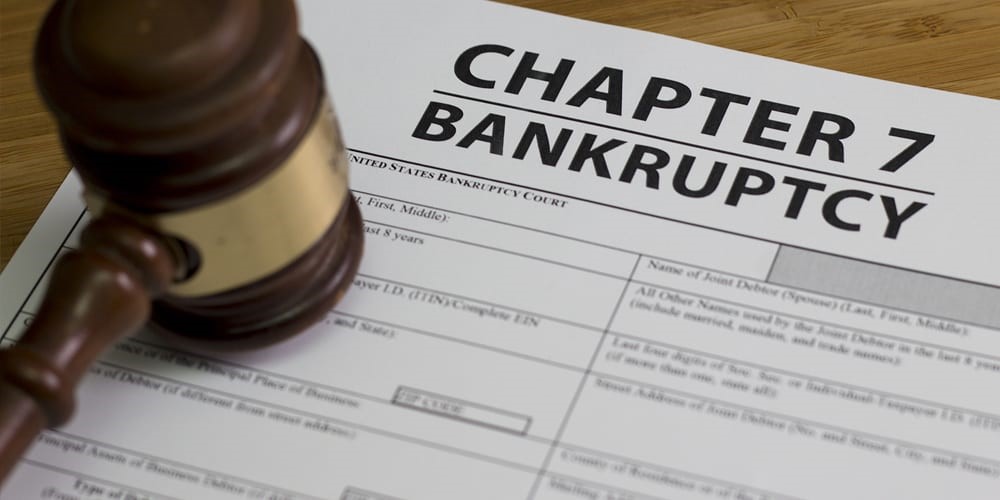
First and foremost, before knowing about filing of Chapter 7 Bankruptcy, let’s look into what a “bankruptcy”actually really is. .
Bankruptcy is, at bottom, alegalproceeding set in a very specialized federal court: the United States Bankruptcy Court. This type of proceeding can relieve you of your personal responsibility to repay all your debts, protect your most important assets, potentially remove involuntary liens against those assets, and give you a financial (and, in many cases, emotional)“fresh start” in life. Most people and businesses will declare bankruptcy voluntarily, although, technically, it is possible to be involuntarily forced into bankruptcy, but that is exceedingly rare. But the bankruptcy process(and the legal paperwork and required documentation involved with that process), particularly since 2005, has become increasingly complicated
Sometimes events beyond your (or anyone’s)control can profoundly impact your financial standing and your earning potential. These events lead many to incur debts beyond their ability to manage, leaving themoverwhelmed. If you find yourself unable to pay your bills, you may want to consider filing for bankruptcy. Here we represent clients in the area and throughout Massachusetts who seek debt relief through Chapter 7 bankruptcy. Chapter 7 of the Bankruptcy Code is designed to give debtors a meaningful “fresh start. While many people labor under the misconception that a Chapter 7 bankruptcy filing will end up leading to the liquidation of all of their assets, this is generally not true.
While Chapter 7 is described in the Bankruptcy Code as a “Liquidation”, this title can be misleading. Chapter 7 bankruptcy is best thought of as an “asset-based” form of the bankruptcy process. That is, with drives the payment to creditors in the bankruptcy case is the liquidation of only those assets of the debtor or debtors that have a substantial value in excess of (a) encumbrances (that is, mortgages and car loans, voluntary liens and the like) and (b) the debtor’s claims of “exemption” under applicable federal and state law. The vast majority (better than 95%) of Chapter 7 bankruptcy cases involve no actual liquidation activity on the part of a Chapter 7 Trustee because there simply are no nonexempt, unencumbered, assets of a sufficiently high enough value that the debtors may own to justify the expense of liquidation and administration by the Chapter 7 Trustee assigned to any one particular bankruptcy case. These types of Chapter 7 bankruptcy cases are generally referred to as “no asset cases” and are rapidly move through the bankruptcy process without any liquidation of any assets of the debtors. With extensive experience in this area, we can help shepherd you through Chapter 7 quickly and efficiently.
Once you have filed for bankruptcy, there comes into existence a provision of the Bankruptcy Code (Section 362(a), to be precise) called the “Automatic Stay”. The Automatic Stay once it comes into existence, has the function and effect of a federal court order directed at all of the creditors of the debtors to “stop, do not pass go do not even try to collect $200”, on the pain of some truly awful consequences for them. Under the Automatic Stay, creditors upon being notified of its existence, must immediately stop allcollections efforts, including harassing letters, email, text messages and phone calls. The Automatic Stay requires that any creditors that have commenced suit to collect on their debts in court, must immediately notify those courts and suspend and dismiss those collection actions. If the creditor is trying to foreclose on a mortgage or repossess a car for which they have a car loan lien, they must immediately suspend those activities and cease those foreclosure/repossession actions is pending in court. The consequences to creditors for willfully violating the Automatic Stay are very serious and involve not just compensatory damages (in order to make the debtor whole) but also the award of punitive damages against the creditor and forcing the creditor to pay the legal costs of enforcing the automatic stay by the debtors.
It is undeniably challenging to decide whether to file for bankruptcy protection. It can have an impact on your current creditworthiness and sense of self. However, your short-term quality of life can also be significantly improved as the collection calls and demand letters stop. No mistake, a bankruptcy proceedingis a challenging procedure with both benefits and drawbacks. In particular, Chapter 7 bankruptcy may necessarily impact your “credit score”, but this effect is ultimately temporary under the Federal Fair Credit Reporting Act. By the same token however, it may also offer much-needed relief and a plan for restoring your financial stability.
Numerous misunderstandings and “urban myths” still exist regarding the bankruptcy process. In actuality however, the primary goal of the consumer and business bankruptcy process was intended to help people get rid of some debt and financially stabilize them sufficiently so that they can financially“start over”. It needs to be viewed as anlegal remedy, rather than as a form of punishment. In reality, according to a 2018 poll by the American Bankruptcy Institute, 93% of Chapter 7 applicants were successful in keeping their homes and cars as long as they could make their payments on time, once their general unsecured debts were substantially reduced or eliminated outright.
So, if done properly, Chapter 7 really can be a needed “fresh start” for someone and not some form of “financial Hell” where they“lose everything”.

Let’s go through a few more advantages of Chapter 7 bankruptcy filing.
Debt Reduction
The debt relief that Chapter 7 bankruptcy offers is without a doubt one of its positive aspects. It has the capacity to relieve you of a significant load in a matter of months. The majority of unsecured debt, including credit card debt, medical debt, and personal loans, may be discharged.
Anyone may apply for Chapter 7 bankruptcy, including individuals, companies, self-employed people, and small company owners. There is no maximum debt amount that disqualifies you from relief; relief is accessible regardless of how much you owe. Individuals must, however, get credit counselling from a recognized credit counselling organization within 180 days prior to filing.
No Repossessions or Collections
Collection efforts are automatically halted by filing for Chapter 7 bankruptcy. This compels creditors to quit suing you, garnishing wages, and continuing harassing telephone calls and dunning letters. All of the creditors whose names and addresses you submit are informed of the bankruptcy filing directly from the Court Clerk for the U.S. Bankruptcy Court for the district where the case is “filed”.
No more worrying about debt collection or repossessions.
Most (if not all) of a debtor’s property will be protected under applicable state and federal exemptions under the provisions of Section 522 of the Bankruptcy Code. Due to the fact that this property is exempt, the Bankruptcy Trustee effectively cannot sell it in order to settle your debts.
By state, exemptions differ. But the majority of goods that are seen as necessities for existence typically fall outside of this category. Your car, your furniture, electronics, household goods and clothing in your home, as well as (under the Massachusetts State-Law Exemption Scheme) up to $500,000.00 of the equity in your home, are frequently claimed as “exempt” property, forever placed beyond the reach of creditors.
Flexible Credit
When you are thinking about filing for bankruptcy, money is scarce and credit is likely already difficult to come by. No responsible creditor (short of a Pay-Day Lender type of“Loan Shark”) wants to give yet more money to borrowers who are already deeply in debt. But while many people believe that it will be significantly more difficult to get approved for any type of newlegitimate form of credit once you file for bankruptcy protection, this is actually not necessarily true.
While it is true under the Federal Fair Credit Reporting Act that a notation of a bankruptcy filing remains as relevant information on a person’s credit report for a period of 10 years from the date of the original bankruptcy filing, that does not mean that they are forever barred during that period from obtaining new credit.According to CreditInfonet, a web-portal used by bankruptcy lawyers to obtain credit information for their clients, in roughly 94% of Chapter 7 cases, a person’s credit score will rise by an average of 83 points within 12 months after receipt of they receive your order of bankruptcy discharge of debts from the U.S. Bankruptcy Court. Indeed, most people are able to obtain a new credit card within 6 to 18 months after their bankruptcy filing has been concluded (if they really want one by that point in time). With respect to mortgages, Fannie Mae and Freddie Mac (the 2 largest buyers of “conforming mortgages” on the secondary mortgage market) have recently issued guidelines that allow the issuance of mortgages at lower interest rates, so long as the new credit application occurs at least 4 years after the date of an applicant’s bankruptcy discharge order.
In sum, the credit score of a person that has filed for bankruptcy protection will eventually increase again, and the longer it is since your bankruptcy filing, the less creditors will hold the fact of your prior bankruptcy filing against you. Eventually, you will be back in good standing with a little work, but the only way to get there is to see the bankruptcy process through to the end.
Fast & Economical Processing
Despite the fact that a Chapter 7 bankruptcy lasts for ten years on your credit report, the entire procedure—from first filing to discharge—should take four to six months. This is advantageous since the sooner your obligations are discharged, the sooner you may start the process of rebuilding your credit and getting the “fresh start” needed in order to improve your financial situation.